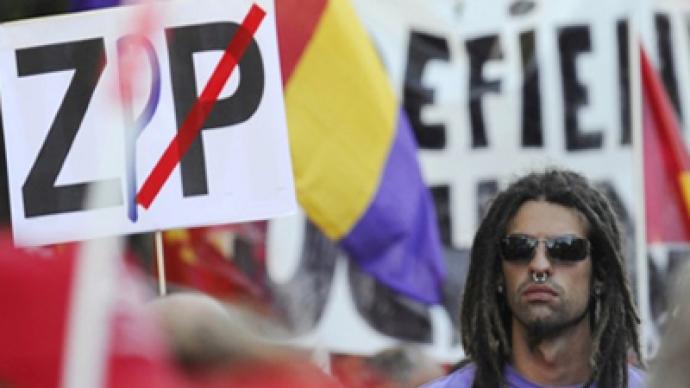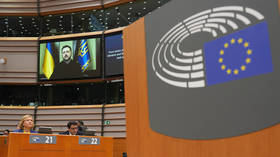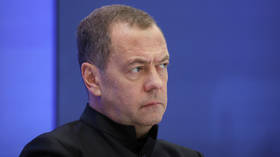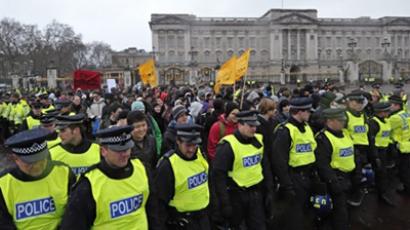Spaniards take to streets to protest austerity measures

There are fresh demonstrations in Madrid against severe budget cuts as the country tries to reduce its massive debt.
Spain has been tipped as the next Eurozone economy at risk of needing a bailout, but some say it could be too big to save. People gathered in the streets of Madrid on Saturday to protest against tough austerity cuts as the country struggles with huge debt. The people have been planning this ever since the government announced a new batch of austerity measures in early December. One of the key issues that the Spanish population is protesting against the cancellation of the 456-euro jobless subsidy, which would leave unemployed people without any source of income.PM Sapatero’s proposal to reform the pension system as well as to raise the retirement age by two years from 65 to 67 has also made people very angry.This is not the first time people have protested in relation to the new austerity measures. Air traffic controllers went on strike as soon as the measures were announced. This inspired an emergency decree, which has not been seen since the military rule, stating that police can arrest any air traffic controller who refuses to work.People in Spain are calling for a general strike to be held in January or February next year if the government does not listen to their demands of not reforming the pension system and raising the retirement age.Social repercussionsIt is early morning, and for the people waiting at one of Madrid’s community centers, it is yet another day of survival. Andres used to be a regular client at the center. Now he is a volunteer – helping those whose dire situations he knows only too well. “I have always been a plumber, but now I am unemployed. Here, in Madrid, it’s the only place where I can work, help people and help myself. I don’t receive any help from the authorities, no social benefits, nothing,” he says. The collapse of the global financial system, Europe’s debt crisis and Spain’s recent property crash have hammered the Spanish economy – with new austerity measures making life even harder. “Well this means misery for many families,” says Rui Tavares, a European MP. “Not only financial misery. I’m talking about personal, psychological, family misery. So these things have consequences on people.”In one day, about 180 people visit the center for a warm meal, secondhand clothes, or a few hours of shelter. But at the end of each day, they all have to go back to their harsh realities and for some, this reality is literally just around the corner. Andres himself lived on the streets for a year.“It´s very difficult. The streets are cold and you could run into the police or municipal authorities. There is nothing to do there. There is no help. No shelter,” he says.The new austerity plan will see cuts to subsidies for the jobless which could hurt some 5 million people who are out of work. “The economic situation is very difficult. With almost 21 per cent unemployment here, the personal living, daily life is becoming very difficult for a lot of people,” says Alicia Gonzalez, an economic journalist for El Pais.The people who have managed to maintain employment also feel they have to reduce all their spending. Euro-visionAs ordinary people suffer, some European politicians say the euro is to blame – and is doomed. “A common currency is unrealistic,” says Morten Messerschmidt, Danish MP.“You can only do the other alternative, which is to bring back the national currencies of these countries, simply realizing that these countries do want to maintain their independence on their economic policy, their budget policy, and therefore they must have their own currency. You cannot integrate something that is non-integratable.”But leaders of the 27 member nations of the European Union are sticking to their guns, showing a united front in tackling the crisis, and safeguarding the beleaguered currency, with a permanent bail-out strategy for countries in trouble. Far from the plush corridors of power lies the reality of hard times in Europe. And when all else fails, there is always that option of taking to the streets – whether or not their voices will be heard.Jim Corr, a political activist and musician from the Irish band The Corrs, calls the situation in Europe “Robin Hood in reverse” for the tendency of the poor and middle-class bailing out the super-rich. He believes Ireland should quit the Eurozone and start printing its own money to solve its debt problem.“The root of the problem is – we are not printing our own debt-free money,” he said.













